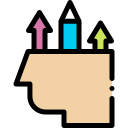Understanding and leveraging digital literacy is essential in today’s fast-paced job market. Digital skills are no longer optional—they are a necessary foundation for unlocking career growth and discovering new professional opportunities. This page explores how improving digital literacy can propel your career, enhance your productivity, and help you remain competitive in an evolving workplace. From foundational computer skills to mastering emerging technologies, developing digital literacy is an investment in a more promising professional future.
The Importance of Digital Literacy for Career Growth
Adapting to Technological Change
The speed at which technology evolves can be daunting, but those with robust digital literacy are better equipped to keep pace. Being agile in adopting new software, platforms, or workflow systems allows individuals to maintain their relevance and value within their organizations. Proactively seeking out training and resources to stay current demonstrates to management a willingness to learn and adapt, positioning you as an indispensable team member who can contribute to transformative projects and initiatives.
Enhancing Productivity and Efficiency
Digital literacy empowers professionals to optimize their work processes and achieve higher efficiency. Mastery of productivity tools, such as cloud-based document collaboration, scheduling software, and data analysis platforms, helps employees streamline tasks and minimize errors. By automating repetitive functions and leveraging tools that facilitate communication and collaboration, you not only complete work more quickly, but also free up time to focus on problem-solving and innovation—key drivers of career advancement.
Standing Out in a Competitive Job Market
Employers increasingly prioritize candidates who demonstrate capability and comfort with digital technology. On resumes and during interviews, highlighting your digital skills can set you apart from other candidates who may not possess the same technical acumen. Digital literacy is transferable across industries and roles, broadening your range of potential job opportunities and opening doors to emerging sectors that are inherently technology-driven.
Key Digital Competencies that Drive Professional Success
Having command over fundamental computer operations is the entry point to digital literacy. This means more than just proficiency with word processing or email; it includes understanding file management, operating systems, and cloud storage solutions. These primary skills underpin most professional activities and are often assumed by employers. As you become more confident and efficient with these tools, you enhance your ability to learn and adopt more complex digital applications, laying a strong foundation for further technological growth.
Previous
Next
Strategies for Improving Your Digital Literacy
Continuous learning is the cornerstone of digital literacy growth. The digital landscape changes rapidly, so professionals who commit to lifelong learning stay ahead in their fields. This might involve enrolling in online courses, participating in webinars, or reading industry publications that cover emerging technologies. Setting aside regular time for structured learning ensures that your digital skills remain current, and that you can quickly adapt to new tools and industry standards as they emerge.
